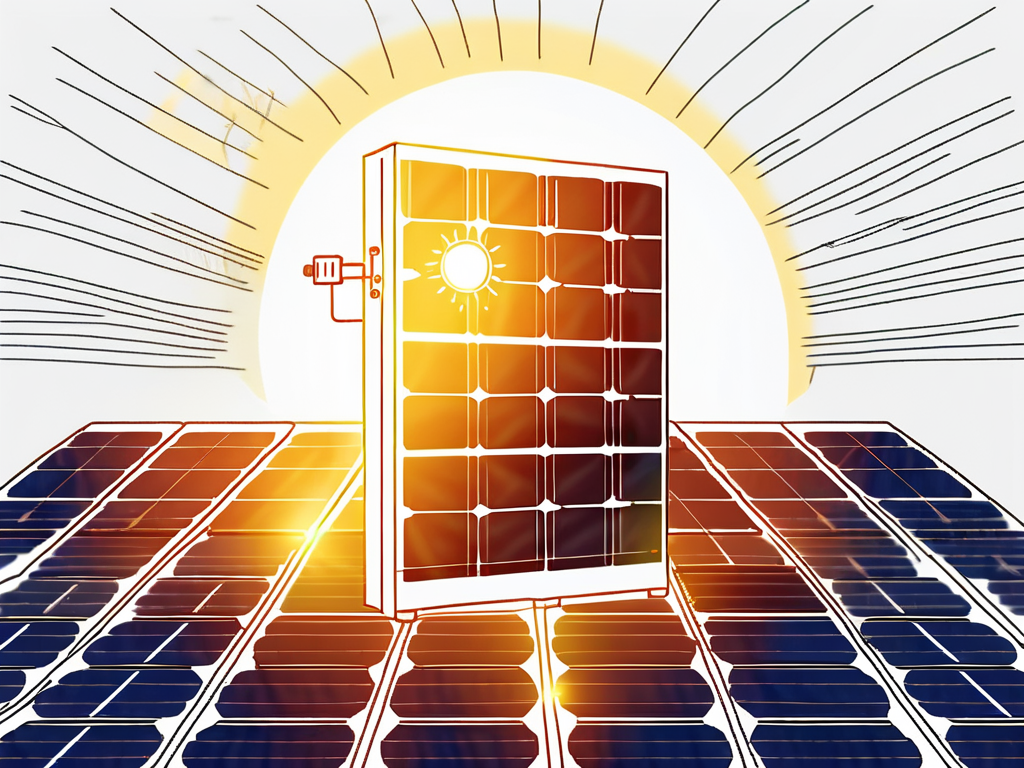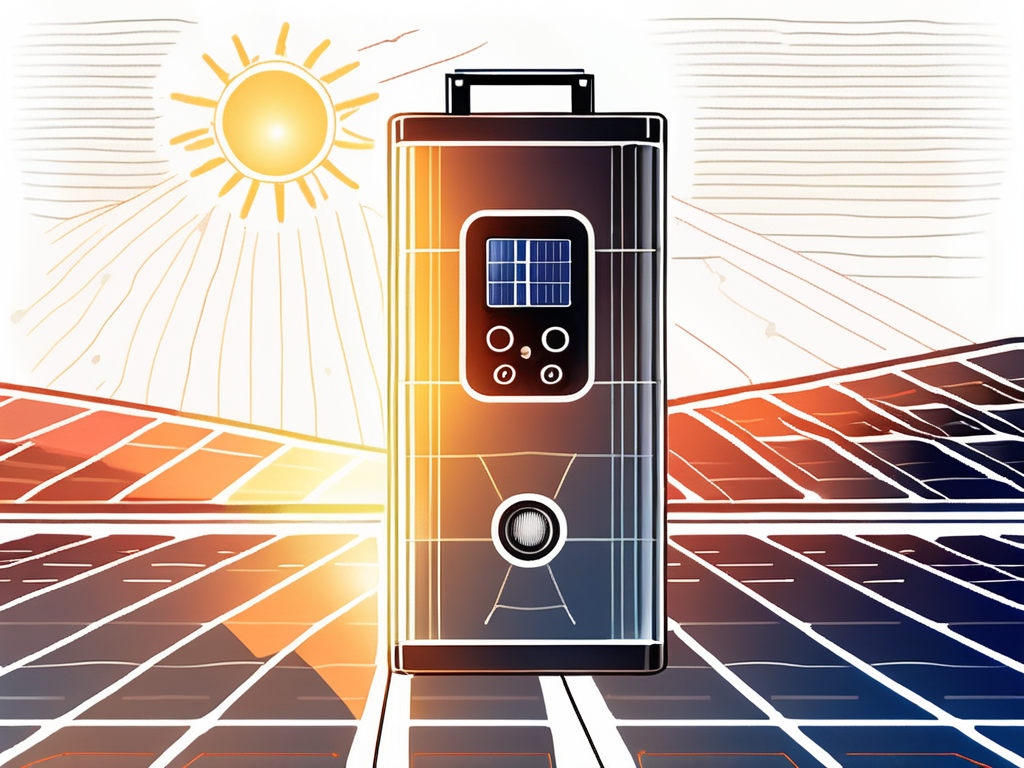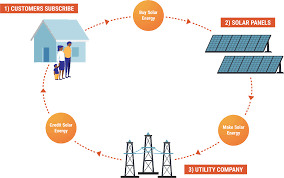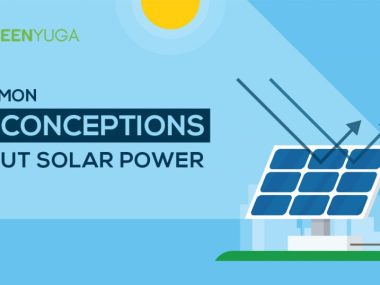How efficient are solar batteries?
At a time when renewable energy sources are gaining popularity, solar batteries have emerged as a crucial component of energy storage systems. These batteries play a significant role in optimizing the efficiency and effectiveness of solar power. In this article, we will explore the technology behind solar batteries, discuss their benefits, factors affecting their efficiency, compare different types, provide tips for maximizing efficiency, examine their lifespan, discuss innovations, and address their environmental impact. Additionally, we will debunk common misconceptions and peer into future trends in solar battery development.
Exploring the Technology Behind Solar Batteries
Solar batteries are devices that store energy generated by solar panels during sunny periods and discharge that energy during cloudy days or at night. They consist of various interconnected components such as photovoltaic cells, charge controllers, inverters, and energy storage mediums like lithium-ion or lead-acid batteries.
The photovoltaic cells, also known as solar cells, are the building blocks of solar panels. These cells are made of semiconductor materials like silicon, which generate electricity when exposed to sunlight through the photovoltaic effect. The efficiency of solar cells in converting sunlight into electricity has been steadily increasing over the years, making solar energy a more viable and sustainable option for power generation.
The charge controllers play a crucial role in managing the flow of electricity from the solar panels to the batteries. They regulate the voltage and current coming from the solar panels to ensure that the batteries are charged efficiently and safely. Some advanced charge controllers also have features like maximum power point tracking (MPPT), which helps optimize the energy harvesting process by finding the ideal operating point for the solar panels.
The DC electricity generated by the solar panels is converted into alternating current (AC) electricity by inverters. This conversion is necessary because most household appliances and electrical grids operate on AC power. Inverters ensure that the electricity generated by the solar panels is compatible with the appliances in your home, allowing you to power your devices with clean, renewable energy.
Energy storage mediums like lithium-ion batteries have become increasingly popular in solar battery systems due to their high energy density, long lifespan, and fast charging capabilities. These batteries store the excess energy generated by the solar panels during the day for use when sunlight is not available, such as during the night or on cloudy days. By storing energy in batteries, solar power systems can provide a reliable and uninterrupted power supply, reducing reliance on the traditional grid and fossil fuels.
In addition to the aforementioned advantages, solar batteries also contribute to environmental sustainability by reducing carbon emissions and reliance on fossil fuels. By storing excess solar energy generated during the day, these batteries allow users to tap into clean and renewable energy sources even when the sun is not shining. This shift towards sustainable energy practices not only benefits individual users but also plays a crucial role in combating climate change on a larger scale.Moreover, the advancements in solar battery technology have led to increased efficiency and durability, making them a reliable long-term investment for consumers. Modern solar batteries are designed to have a longer lifespan, requiring minimal maintenance and offering consistent performance over the years. This reliability ensures that users can continue to enjoy the benefits of solar energy storage without worrying about frequent replacements or malfunctions. As the demand for renewable energy solutions grows, solar batteries are poised to play a key role in shaping a more sustainable and resilient energy landscape for the future.
Factors Affecting the Efficiency of Solar Batteries
The efficiency of solar batteries is influenced by several factors. One critical factor is the charging efficiency, which determines how effectively the solar panels and charge controllers convert sunlight into stored energy. The charging efficiency can be affected by the angle and orientation of the solar panels, as well as any shading that may occur throughout the day. It is important to regularly clean the solar panels to ensure optimal sunlight absorption and maximize charging efficiency.
 Temperature sensitivity is another key factor that can impact the efficiency of solar batteries. High temperatures can decrease the overall efficiency of the battery system, as heat can reduce the battery’s ability to hold a charge. To mitigate this, some solar battery systems incorporate cooling mechanisms to maintain optimal operating temperatures and improve overall efficiency.
Temperature sensitivity is another key factor that can impact the efficiency of solar batteries. High temperatures can decrease the overall efficiency of the battery system, as heat can reduce the battery’s ability to hold a charge. To mitigate this, some solar battery systems incorporate cooling mechanisms to maintain optimal operating temperatures and improve overall efficiency.
Discharge efficiency is also crucial in determining the effectiveness of solar batteries. The rate at which a battery can discharge its stored energy and power connected devices plays a significant role in overall system performance. Proper maintenance and monitoring of the battery’s discharge cycles can help optimize its efficiency and prolong its lifespan. Additionally, the overall design and maintenance of the energy storage system, including the quality of components used and regular system checks, are essential factors in ensuring the efficiency and longevity of solar batteries.
When it comes to solar batteries, lithium-ion batteries are a popular choice due to their high energy density and long lifespan. These batteries are known for their lightweight design, making them easy to install and move if needed. Additionally, lithium-ion batteries have a low self-discharge rate, meaning they can hold onto stored energy for longer periods without significant loss. However, it’s essential to note that lithium-ion batteries can be more expensive upfront compared to other types of solar batteries.Lead-acid batteries, on the other hand, have been around for a long time and are a more affordable option for storing solar energy. While they may not have the same energy density as lithium-ion batteries, lead-acid batteries are known for their reliability and ability to withstand deep discharges. They are also widely available and recyclable, making them a more environmentally friendly choice for some consumers. Despite their lower energy density and shorter lifespan compared to lithium-ion batteries, lead-acid batteries remain a popular choice for off-grid solar systems and other applications where cost-effectiveness is a priority.Flow batteries are a lesser-known option in the realm of solar energy storage but offer unique advantages. These batteries store energy in liquid electrolytes contained in external tanks, allowing for scalability and flexibility in terms of capacity. Flow batteries are known for their long cycle life and the ability to discharge completely without causing damage. While they may have a larger physical footprint compared to other types of batteries, flow batteries are well-suited for large-scale energy storage applications where long-duration discharge is necessary.In addition to the aforementioned tips, it is crucial to regularly inspect and clean your solar panels to remove any dirt, dust, or debris that may accumulate on the surface. This simple maintenance task can significantly improve the efficiency of your solar battery system by allowing more sunlight to be absorbed and converted into energy. Furthermore, checking for any shading issues caused by nearby trees, buildings, or other obstructions is essential to ensure that your solar panels receive uninterrupted sunlight throughout the day.Another important aspect to consider is the quality of the components used in your solar battery system. Investing in high-quality solar panels, batteries, inverters, and charge controllers can lead to better performance and longevity of your system. It is recommended to consult with a professional solar installer to determine the most suitable and reliable equipment for your specific energy needs and budget. By prioritizing quality over cost, you can maximize the efficiency and effectiveness of your solar battery system for years to come.
Understanding the Lifespan of Solar Batteries
The lifespan of solar batteries depends on various factors such as their chemistry, usage patterns, and maintenance. While lithium-ion batteries generally have a longer lifespan and require less maintenance compared to lead-acid batteries, their longevity can still be influenced by factors like depth of discharge, temperature fluctuations, and regular monitoring and maintenance.
Innovations in Solar Battery Technology
Solar battery technology is continually evolving to improve efficiency and overcome limitations. Innovations include advancements in battery chemistry, such as solid-state batteries and organic polymers. Researchers are also exploring novel approaches like integrating solar panels directly into battery cells and utilizing nanotechnology for enhanced performance.

Environmental Impact of Solar Batteries
Solar batteries offer numerous environmental benefits compared to conventional energy sources. They contribute to reducing greenhouse gas emissions, dependence on fossil fuels, and air pollution. However, it is essential to responsibly manage the disposal and recycling of solar batteries to minimize their potential environmental impact.
Common Misconceptions About Solar Batteries
There are several misconceptions surrounding solar batteries that need to be debunked. Some people believe that solar batteries are too expensive and have limited capacity. However, with advancements in technology and decreasing costs, solar batteries have become more accessible and capable of meeting various energy storage needs.

Future Trends in Solar Battery Development
Solar battery development is expected to witness significant advancements in the coming years. Research is focused on enhancing overall efficiency, increasing energy density, and improving battery lifespan. Integration with smart grid systems, vehicle-to-grid technology, and the adoption of renewable energy microgrids are also anticipated to shape the future of solar battery utilization.
In conclusion, solar batteries are a promising technology that significantly contributes to the efficiency and reliability of solar power systems. From exploring their technology to discussing their benefits, factors affecting efficiency, and comparing different types of batteries, this article aimed to provide a comprehensive overview of solar batteries. By understanding their potential, taking measures to maximize efficiency, and embracing future trends, individuals and communities can effectively harness the power of solar energy storage for a sustainable future.












